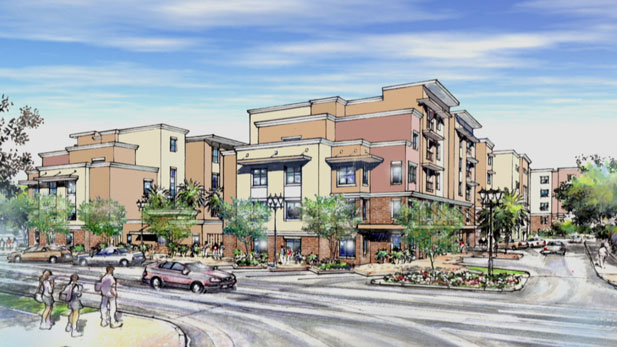Yes, it is true; many real estate developers are now going back to college. Are they going back to learn a new trade? Learn how to better manage their current business? While the answers to both those questions in some cases may be true, the main reason why they have returned to their college campuses is to build. These developers see a great opportunity to build student housing that is designed around the students’ wants and needs.
American Campus Communities Inc. is one of the largest and leading developers of student housing in the United States. They currently have over $156 million invested in 4 current student housing projects set to be completed by Fall 2012. Their housing projects are located in Arizona, Georgia, New Mexico and Texas which combine to house 3,249 beds.
But aren’t we in a recession? Isn’t the real estate market dead?
 The answer is yes and no. Yes the economy is struggling, but no the real estate market is not dead….not completely. While some markets of real estate, such as the residential housing market, have been stagnant following the devastating housing bubble burst a couple years back; one market that has seen steady growth in the past 20 years is student housing.
The answer is yes and no. Yes the economy is struggling, but no the real estate market is not dead….not completely. While some markets of real estate, such as the residential housing market, have been stagnant following the devastating housing bubble burst a couple years back; one market that has seen steady growth in the past 20 years is student housing. The recent article featured by the Urban Land Institute describes the reasons developers have decided to build in such a market.
The two main reasons for developers to build student housing are:
1) Rising rents
2) Increasing enrollment at universities
According to the ULI article, rents are projected to increase 2 to 6 percent in 2011. A rental rate increase in that range could mean smiling faces for owners and developers. Also, universities in general have seen an increased number of applicants and attendees; the number is continuing to grow. This growth is due to the current state of the economy which has been witness to many job losses. Many victims of the economy are deciding that more education will help their chances of gaining another job in either the same industry or a new one.
Another economic factor working in favor of these developers is the very high occupancy rate for student housing. Most major universities have essentially a “micro economy” surrounding them which is not greatly affected by the national economy. The reason for this is the high-density of students living around campus. It is almost certain that there will always be students at these universities and they need to live somewhere.
Developers also realize that the limited housing stock in the university areas is becoming outdated.
"Today’s student population is looking for a student housing experience that replicates the individual’s experience of living at home. Many high school students have grown up not sharing a bedroom and often times a bathroom. Additionally, not only do many grow up enjoying community amenities such as swimming clubs and fitness facilities, but their multimedia experiences at home have become increasingly elaborate."
They are catering new developments to be a great social experience with many features and amenities that attract students that current student housing cant offer.
While I do see the construction of new student housing projects as a benefit for the universities, the students and the micro economies surrounding the schools, I have one concern…overbuilding. I fear that the universities micro economies might witness a similar housing crisis as the national economy if developers overbuild these areas. I could only hope that these developers are wise enough to run market studies and correlate with the university to quantify the need for housing. Lets hope that these developers decide to brush up on the real estate markets and feasibility classes while revisiting university campuses.







